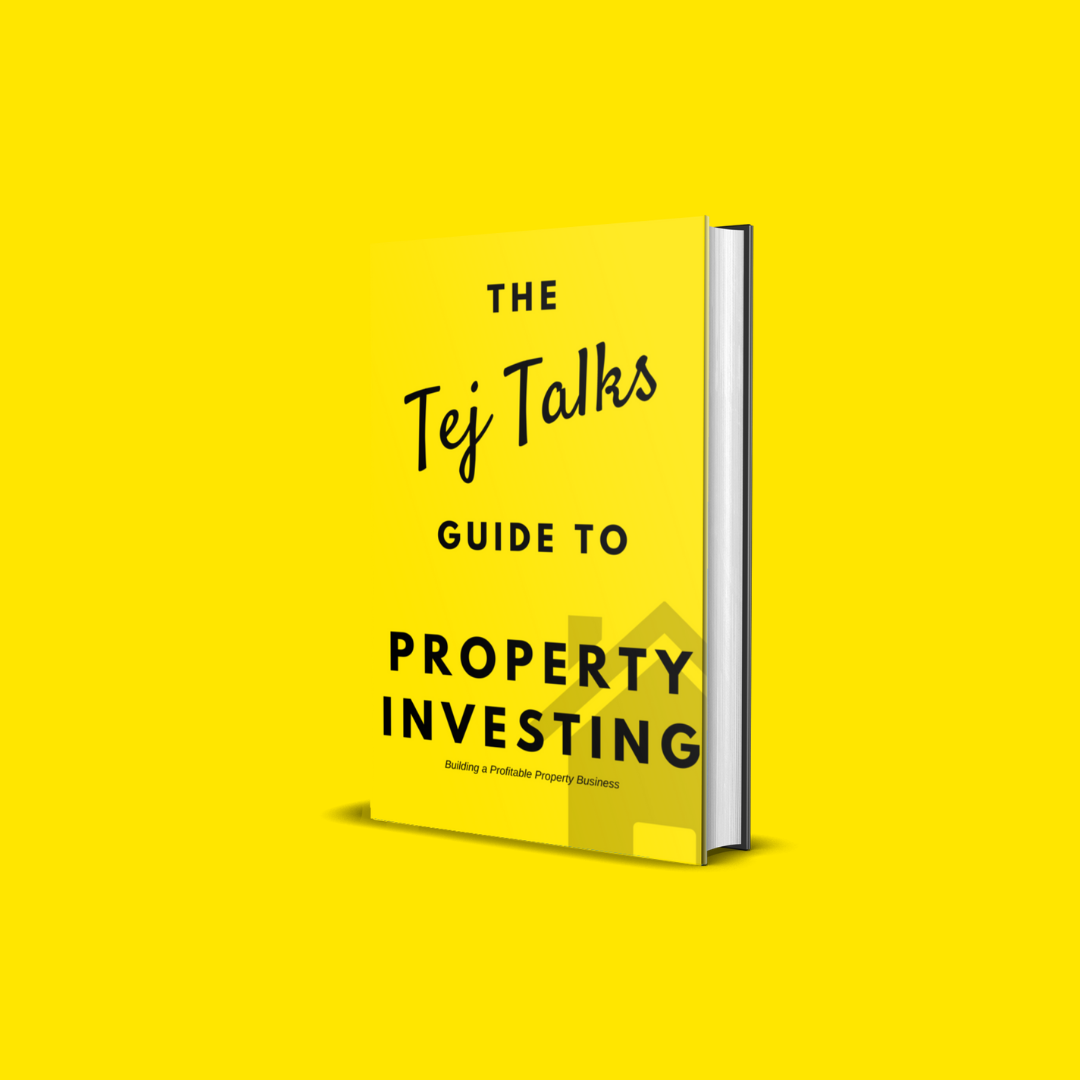3 Reasons Why Investing In Property Could Be Better Than A Pension
THIS IS NOT FINANCIAL ADVICE.
Big plans lead to big questions. Your retirement is one of the biggest events you’ll ever have to plan. Imagine living the last 40 years of your life barely getting by. You've worked hard all those years just to find that you're still having money problems.
It doesn't have to be that way. Good retirement planning could help you live the life you want, but it could also help you retire earlier than the average. When it comes to investing in your retirement funds, many are stuck between figuring out whether they should invest in property or in a pension.
In this blog, you'll learn three reasons why property may be the best option for you.
Before we go any further, note that I am not a financial advisor. Please speak to your own advisor before you make any financial decisions.
It doesn't have to be that way. Good retirement planning could help you live the life you want, but it could also help you retire earlier than the average. When it comes to investing in your retirement funds, many are stuck between figuring out whether they should invest in property or in a pension.
In this blog, you'll learn three reasons why property may be the best option for you.
Before we go any further, note that I am not a financial advisor. Please speak to your own advisor before you make any financial decisions.

Property May Be Better Than A Pension If…
With that out of the way, let’s get into it.
The main reason property could be a better retirement option than a pension is based on your willingness to put some effort into it. A pension is a completely hands-free option, but that might not always be a good thing, depending on your circumstances.
Property allows you more control and CAN be ‘passive’ if you choose the right strategy.
Let’s dive into the reasons why it could be a better option for you. But remember, a diversified portfolio is better than just one asset class.
Property allows you more control and CAN be ‘passive’ if you choose the right strategy.
Let’s dive into the reasons why it could be a better option for you. But remember, a diversified portfolio is better than just one asset class.
You Want To Retire Earlier Than 55

If you’re investing in property, you gain the benefits of being able to pull out your money whenever you decide to. All you need to do is sell the property or remortgage. That’s not the case with a pension, which requires you to wait until you’re 55 to see any of your retirement funds. Even then, you’ll only have access to 25% of the funds tax-free, until you’re 60 (source: Pensionbee).
Yes, selling a property isn’t as easy as simply putting it on the market and waiting. There’s a full process behind it, and it may take a few months. But it will still give freedom to choose when it’s time to sip cocktails on the beach all day.
Regardless, if you invest in property for cash flow rather than capital appreciation, as you should; you’ll be making a passive income.
Meanwhile it should be mentioned that you’ll still have to pay tax on this income. So it’s not all good. But it’s way better than waiting until half your life is over before you get to enjoy your wealth.
If this appeals to you, make sure you invest correctly and develop a good system for managing your properties. The last thing you want is to be a tired landlord replacing ripped-out taps every Sunday afternoon. You can learn more about how you’d do this in my book: Guide To Property Investing.
Yes, selling a property isn’t as easy as simply putting it on the market and waiting. There’s a full process behind it, and it may take a few months. But it will still give freedom to choose when it’s time to sip cocktails on the beach all day.
Regardless, if you invest in property for cash flow rather than capital appreciation, as you should; you’ll be making a passive income.
Meanwhile it should be mentioned that you’ll still have to pay tax on this income. So it’s not all good. But it’s way better than waiting until half your life is over before you get to enjoy your wealth.
If this appeals to you, make sure you invest correctly and develop a good system for managing your properties. The last thing you want is to be a tired landlord replacing ripped-out taps every Sunday afternoon. You can learn more about how you’d do this in my book: Guide To Property Investing.

You Want A Higher Income In Your Retirement
Let’s look at this through the lens of numbers. You don’t want to slave away all your best days only to be making less than the average annual income at your retirement.
If you get an annuity with your pension pot, you will need to have about £2,000,000 to make £40,000 per year (Source: The Property Pension Plan). If you’ve got £2,000,000 saved up in a pension, you are probably earning a high income or have a large inheritance. So £40,000 per year would leave a lot to be desired. This figure also depends on a range of other factors such as health and age so make sure to get a professional quote on how much you’ll make here: https://www.moneyadviceservice.org.uk/
Now consider your return if you’ve invested using a regular buy to let (BTL) strategy: If you look at the average rental yield in the UK for 2022 (3.63% according to track capital), you’ll need a property portfolio of around £1,100,000 to make a rental turnover of £40,000 per year. If this still seems daunting, keep in mind we’re talking about the average yield. If you know what you’re doing, you’ll be able to achieve yields of 8% and beyond fairly easily. Growing a £1 million property portfolio may seem far off, but you can do it in less than a year by using leverage and remortgaging strategies. That’s what I did. You can learn more about how I regularly find deals that yield high and use leverage to grow my portfolio quickly here: eLearning.
The big advantage with property is that you’re not reliant on your own money as much as you are with pensions. With property, you can borrow money at a high loan to value ratio and low-interest rates, which means that you can build a sizable portfolio fairly quickly.
For example, a £120,000 house could cost you £30,000 of your own capital if you use a BTL mortgage at 75% LTV. Say your total cash pot is £120,000, you could in theory buy 4 BTL properties which would be worth £480,000 in total. With an 8 % yield, your rental turnover would be £38,400 per year. How much of that becomes profit depends on your costs. But building a £2,000,000 portfolio in property can be a lot more time-efficient than saving it in a pension portfolio.
Again, for this to truly be worth your investment, it’s better to build a process around the management of your properties. After all, you want your income to be as passive as possible. How to manage your properties effectively is beyond the scope of this blog, but I’ve explained how I do it in my book.
If you get an annuity with your pension pot, you will need to have about £2,000,000 to make £40,000 per year (Source: The Property Pension Plan). If you’ve got £2,000,000 saved up in a pension, you are probably earning a high income or have a large inheritance. So £40,000 per year would leave a lot to be desired. This figure also depends on a range of other factors such as health and age so make sure to get a professional quote on how much you’ll make here: https://www.moneyadviceservice.org.uk/
Now consider your return if you’ve invested using a regular buy to let (BTL) strategy: If you look at the average rental yield in the UK for 2022 (3.63% according to track capital), you’ll need a property portfolio of around £1,100,000 to make a rental turnover of £40,000 per year. If this still seems daunting, keep in mind we’re talking about the average yield. If you know what you’re doing, you’ll be able to achieve yields of 8% and beyond fairly easily. Growing a £1 million property portfolio may seem far off, but you can do it in less than a year by using leverage and remortgaging strategies. That’s what I did. You can learn more about how I regularly find deals that yield high and use leverage to grow my portfolio quickly here: eLearning.
The big advantage with property is that you’re not reliant on your own money as much as you are with pensions. With property, you can borrow money at a high loan to value ratio and low-interest rates, which means that you can build a sizable portfolio fairly quickly.
For example, a £120,000 house could cost you £30,000 of your own capital if you use a BTL mortgage at 75% LTV. Say your total cash pot is £120,000, you could in theory buy 4 BTL properties which would be worth £480,000 in total. With an 8 % yield, your rental turnover would be £38,400 per year. How much of that becomes profit depends on your costs. But building a £2,000,000 portfolio in property can be a lot more time-efficient than saving it in a pension portfolio.
Again, for this to truly be worth your investment, it’s better to build a process around the management of your properties. After all, you want your income to be as passive as possible. How to manage your properties effectively is beyond the scope of this blog, but I’ve explained how I do it in my book.
You Want A More Stable Retirement Income That Is Resistant To Market Changes
One of the main reasons why people choose pensions instead of property is that pensions allow you to diversify your money. Property is just one asset. So property is more risky, right?
Maybe in theory. But the reality is far different. Property is a tangible asset that people need to survive. There’s been a demand for property since the dawn of man and that won’t change anytime soon, as long as people need shelter. The population is increasing and it becomes harder to supply the rising demand for property in the UK.
That’s why property prices are always on the rise. If you look at the actual numbers, property prices increased by 47,000% between 1926 and 2016 (Source: The London Economic). Compare that to the rate of inflation which has been around 5,500% in the same period (Source: CPI inflation calculator). So the property prices have beaten inflation by more than 40,000% since 1926! Unsafe asset?
Maybe not. Once again, I should make it clear: You cannot buy ANY property and expect it to rise in price. You need to invest in the right locations, and generally know how to find good deals. I’ve made a blog post about how you can identify good deals here: 3 Ways To Identify A Deal.
Maybe in theory. But the reality is far different. Property is a tangible asset that people need to survive. There’s been a demand for property since the dawn of man and that won’t change anytime soon, as long as people need shelter. The population is increasing and it becomes harder to supply the rising demand for property in the UK.
That’s why property prices are always on the rise. If you look at the actual numbers, property prices increased by 47,000% between 1926 and 2016 (Source: The London Economic). Compare that to the rate of inflation which has been around 5,500% in the same period (Source: CPI inflation calculator). So the property prices have beaten inflation by more than 40,000% since 1926! Unsafe asset?
Maybe not. Once again, I should make it clear: You cannot buy ANY property and expect it to rise in price. You need to invest in the right locations, and generally know how to find good deals. I’ve made a blog post about how you can identify good deals here: 3 Ways To Identify A Deal.
Summary
Investing in property can be a great way to fund your retirement. I don’t have anything against investing in your pension. I do both as part of a diverse and balanced portfolio. But if you’re finding that you’d like to retire earlier than 55, maximise your retirement funds and invest in a secure asset, then property should be a priority on your list.
Always ask for help from your financial advisor and make your own decision on what the best option for you is.
Always ask for help from your financial advisor and make your own decision on what the best option for you is.
Write your awesome label here.
Where you going?
Join my Mailing list for exclusive discounts
Thank you!

